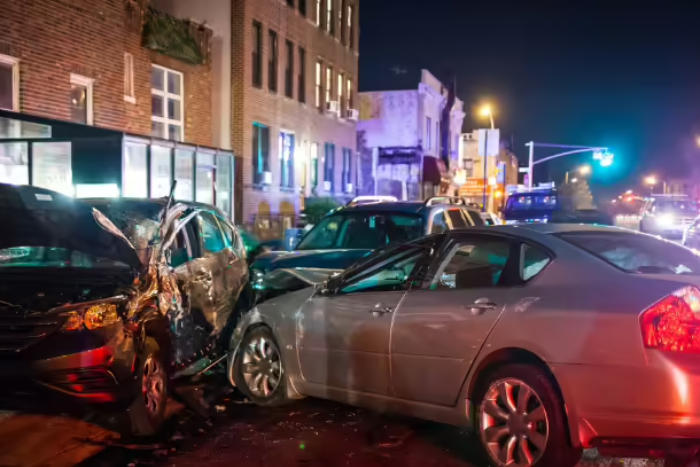Traffic accidents are among the leading causes of death in the US for people under 54.
A vehicle accident can be a minor inconvenience or a life-altering event. Either way, if mishandled, it can leave you with significant financial and legal consequences.
If you are involved in a car accident, here is what to do (and not do) at the scene and afterward.
1. Be Careful What You Say
While it might not be possible to remain completely silent after a traumatic event, it’s advisable that you say as little as possible and be careful what you do say.
Exchanging your insurance information with the other people involved in the accident is normal and it is legally required.
Do this calmly and without going into details about the accident or the events leading up to it.
Do not apologize for the accident or otherwise admit fault.
This exposes you to a myriad of unpleasant issues from your insurer and even in litigation should the matter end up in court. In a day and age where people pull out their smartphones and record everything, you want to be particularly mindful in your interaction with the other party(s) involved in the accident.
2. Call 911
911 is the quickest way to get emergency medical help if you or anyone else is injured in the crash. However, most people are unsure if and when they should call 911.
Here’s when to call 911:
• Someone on the scene is injured, not moving, bleeding, or trapped in their car
• You need to get in touch with the police, and you can’t get through using other means
• One of the vehicles involved in the accident cannot be safely moved and therefore blocks the road
• There are other hazards that could harm other motorists, like glass, gasoline, and other debris
If the other driver runs away from the scene, still call and remain on the scene until the police arrive.
Whenever possible, remain in your car with the hazard lights on until the police arrive. If the accident was in the middle of the road, consider moving your vehicle off the road to give way to other motorists.
When the investigative officer arrives at the scene, give them the information you have. It’s okay if you forget or are unsure about some details.
However, avoid filling in missing blanks with guesses, estimations, and assumptions. While you might do this in good faith, your insurer could use this information to deny paying your accident claim.
3. Get a Medical Check-Up
If you don’t call 911, make sure you seek medical treatment, even if you feel okay.
Sometimes, traumatic situations trigger the brain to release endorphins and adrenaline, which delay your pain sensations. Occasionally when this happens, pain and discomfort from the accident kicks in hours or days later when you have calmed down.
If you’re in an accident,, you may momentarily black out and come to. This might be indicative of a concussion or a closed head injury. In short, you never really know if you are injured unless you see a doctor.
4. Inform Your Insurer
Make sure to inform your insurer of the accident within a reasonable amount of time. Ideally, you should call them within 24 hours after the accident.
Some potential benefits from your insurer are car repair, wage loss, medical bills, and car rentals.
5. Take Photos of the Vehicle Accident Scene
If you are in a position to do so, take clear photos of the accident scene. Pay particular attention to any damage to your car and injuries to yourself.
If there are any skid marks, make sure to capture these as well, in addition to the other driver’s plates.
This evidence will come in handy if you are being sued. It can also help if the authorities fail to arrive at the scene.
Similarly, note the date, time, street, and direction each car was heading before and after the accident.
The position of the cars in relation to the street is also essential as it helps insurance adjusters recreate the accident when you make a claim.
6. Don’t Sign Anything
Do not agree to sign anything from your insurer or any other parties without consulting a lawyer first.
For one, you must determine if the forms you are signing limit your legal rights. Secondly, if an offer is made, it might be on the lower end of what you should get.
You might succumb to the pressure of the mounting bills and think any offer is a win. This is not necessarily true.
7. Document Everything
Through this process, ensure to document everything relating to the accident. File the photos you take at the crime scene, doctor’s report, test results, prescriptions, and other vital information.
Similarly, document any time you have to take off work or from your business.
This information will come in handy if you file a claim against the other driver.
8. Seek Legal Advice Early
As much as possible, look for an attorney as early on in this process as possible. If you already have one, call them from the accident scene, and let them guide you.
If not, consult one with all your documentation regarding the accident.
We Have Your Back
An accident can leave you physically, mentally, and financially drained. To compound this, getting compensated for your ordeal can sometimes be a long, treacherous road.
In times like this, you need a personal injury lawyer to help you navigate the compensation process, which might include litigation. If ever there is a time you need a helping hand: this is it.
If you or a loved one is involved in a car accident, call the Law Offices of Adrianos Facchetti at (626) 793-8607 for a free consultation today.


